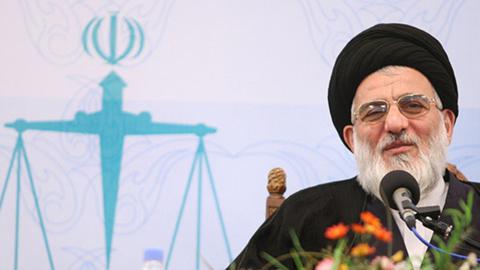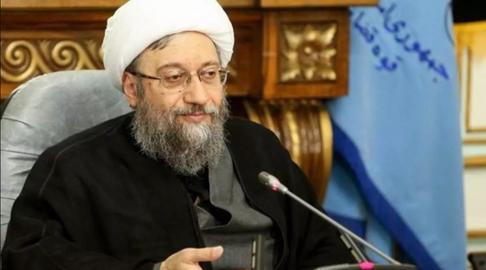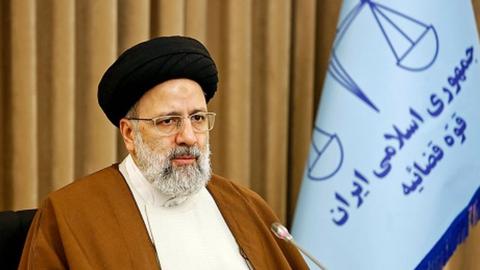Why has Iran’s judiciary been unable to gain public trust over the last 40 years? What are the basic problems of the institution, the original primary goals of which were to"litigate, protect public rights and implement justice" in order to "uphold individual and social rights”?
In a series of articles, IranWire will look at the structural problems of the judicial branch of government, relying on concrete examples and statements from legal experts to build a picture of the judiciary and whether it functions according to the principles on which it was originally based.
In the first part of the series, IranWire looked at the independence and impartiality of Iran’s judiciary.
This, the second article in the series, asks: Why does Iran’s judiciary take so long to process cases? Why are trials prolonged and why do cases tend to accumulate without being resolved?
***
Every time a new judiciary head has been appointed in Iran, he promises to reduce the time litigation takes, at least at first.
In 1999, Hashemi Shahroudi, who took over the leadership of the judiciary from Mohammad Yazdi, said that he had inherited a ruin, adding that people had complained about how long proceedings were taking. Sometimes it takes a month to move a case from one branch to another, he said, even though the different units are adjacent.
When Sadegh Amoli Larijani was appointed as the head of the judiciary, one of his first promises was to reduce lengthy litigations. He later said he hoped that a case would not take more than three or four days to process. But Larijani was not able to fulfill this promise either.
In 2019, Ebrahim Raeesi was appointed as head of the judiciary, and he also promised the transformation of and reforms within the judiciary. From the very beginning of his time at the helm, he has emphasized the importance of eliminating cumbersome formalities attached to individual cases. A year and a half on, lawyers say the queues down the corridors of the Ministry of Justice have not shortened, and nor have the crowds outside, waiting for their legal claims and defense to be addressed.
In an interview with IranWire, a lawyer living in Khuzestan, said that with the appointment of Raeesi, the speed with which large-scale economic corruption cases are handled has accelerated, but the process for ordinary cases remains very slow.
"In January 2020, the head of the judiciary, Ebrahim Raeesi, sent a directive to all judicial institutions regarding the 'handling of pending cases and their immediate resolution.' The directive referred to all legal cases that had been approved so far, and referred to Article 3 of the Code of Criminal Procedure, which states that 'judicial authorities must, with impartiality and complete independence, investigate the charges attributed to persons, take appropriate action and decide as soon as possible and refrain from any action that interferes with or prolongs the criminal proceedings.' In this directive issued by Mr. Raeesi, all judicial officials were instructed to refer to clause D of paragraph 113 of the Sixth Development Plan Law, which states that the average time desirable for processing cases as well as the actual average time for processing people's complaints, and sets a deadline and a specific time limit for processing the cases."
According to the Khuzestan-based lawyer, the directive has been somewhat effective. "But the sheer number of old and new cases and the number of trial judges are so disproportionate that only a miracle can ease the problem of prolonging ordinary proceedings. The problem of prolongation is a structural and fundamental problem connected to other factors that will remain serious until they are resolved."
A Shortage of Judges, Outdated Technology, and a Growing Crime Rate
Mohammad Olyaeifard, a lawyer now based in Canada, says judicial proceedings are lengthy for a number of reasons.
"One of them is a shortage of judges. The law on mandatory representation has not yet been implemented in the true sense of the word, and if the parties to the case misunderstand or make a mistake in filing a complaint, it takes several months to resolve the mistake. The third reason may be that the judiciary uses an old system and methods that are outdated and remote from the concept of new technology. If these three problems were solved and their technology updated, they could reduce the volume and time of the trials."
In an interview with IranWire, Giti Pourfazel, who has paced the corridors of the Iranian courts for many years, said the reason for the delay was the large number of cases, which were increasing day by day in line with the growth of the suburbs and the growing crime rate. "After the revolution, the growth in suburbanization increased the number of criminal cases for economic and political reasons to the point where, according to the head of the judiciary, there are between 15 and 20 million cases in the judiciary. Even if each case has only one plaintiff and one defendant, this means between 30 and 40 million people in the country are involved in cases and are in conflict with someone, and these problems must be resolved in the judiciary."
Pourfazel also says there’s a lack of supporting staff within the judiciary, and this slows the process down too. "A large number of cases must be reviewed and handled in different branches, and the rise in the number of cases will prolong the trial process. However, since the cases are filed electronically in the judiciary and the notification office sends both parties (the plaintiff and the defendant) summons to their homes, sending a message on the Sana portal – designed especially for this purpose — means the time of the cases has been slightly reduced. In addition, occasional illegal action and behavior by the notifier have been eliminated."
But the Sana system has serious drawbacks. A man named Mohammad Reza who was accused of beating a shopkeeper during a fight says he received a summons that a sentence was being handed down without receiving notice to attend the court in the first place.
"I went to the court and said that I had not received the summons and I did not know the time and place of the trial; the law states that in dispute cases, the dates will be communicated in writing to both parties in the case. They said, 'your file was one of the special cases and the notifications were sent to the user account in the Sana system.’ But I do not have a user account. They said, ‘we also sent text messages, but due to the internet being constantly disconnected and reconnected, it is possible that you did not receive the message.’"
Different Waiting Times for Different Types of Cases
Outside ordinary criminal or civil cases, some defendants held for political offenses say the speed of their trial has been rapid, an odd situation for complex or ambiguous cases that require thorough investigation. But instead, some of these cases went from the initial court verdict to the final verdict in a short period of time. In some cases, the sentence was communicated to the office issuing the verdict extremely quickly, without showing credible traces of an extensive legal process.
Speaking to IranWire, Mehri Jafari, an Iranian London-based lawyer, confirmed this. “In certain cases, decisions are made in a matter of days and a person is sentenced to death or to long prison terms. In practice these cases are decided from above," she said.
But she said it made sense to divide ordinary cases into two categories: "Criminal cases usually do not take long to complete — that is, through the legal channel of the police station, a series of documents are handed over and investigations are carried out. In Iran, the accused usually does not have any government support, unlike in Britain or other progressive countries, where the police usually ensure the defendants have access to legal counsel."
In Iran, the defendant has to prove that he or she has not been treated according to the law.
“In civil cases, I have to say it takes a long time, and this can be due to various reasons such as lack of funding, bureaucracy and paperwork, and unnecessary, cumbersome, out-dated systems."
Mina Eskandar's father died four years and eight months ago after he received treatment for cancer from someone the family believes was posing as an oncologist. Her father, whose cancer was not at an advanced stage, died after the phony doctor injected him with a high dose of chemotherapy medication. Eskandar told IranWire that the family has been deprived, that her father had just turned 50 and that if he had received proper treatment, there was no reason he would not have lived for many more years. The family has been pursuing its rights for nearly five years now. The accused has been released on bail, and Eskandar's family, no matter how hard they try, say that don’t believe they will ever get justice.
Mahnaz Prakand, a lawyer now based in Norway, told IranWire delays in the judiciary was a clear result of corruption within that branch of government, and the flaws in its structure.
“From the very early stages of the formation [of the judiciary], there were cases that were quickly registered or where proceedings were scheduled immediately, or referrals to experts happened quickly and easily, all because of people paying illegal bribes. On the contrary, a similar case, if necessary, will be stopped and the investigation process will be slow. This is also due to a corrupt structure in which the prevalence of bribery, the power relationships, the interference of influential officials, and the judge’s bias can help prolong the trial."
Current judicial chief Ebrahim Raeesi has offered various solutions to eliminate the delays in trials. Criticizing the two-stage criminal procedure, he said in 2019 it should be changed. During a speech in 2019, he said there was no point in an appeals court, as it slowed cases down.
Analysis of Iran's courts suggests that Raeesi's recommendation was closer to what actually happens anyway: so often, appeals courts almost always simply confirm the initial verdict and do not carry out a stringent appeals process. In fact, such courts might be better described as "approval" or "confirmation" courts.
In addition, he set a deadline for litigation, determining that it should take place within a certain time period. He pledged to ensure the courts used smart technology, replacing old, creaky systems that were no longer fit for purpose. And yet, so far nothing has changed. Cases move along at the same slow speed — unless, that is, someone involved in bringing the case with influence and power can suddenly kickstart it to his advantage. For everyone else, it’s a slow, prolonged process that lacks credibility. Raeesi and others before him know the judiciary needs a complete overhaul to operate in a free and just way, but this would mean wider scale transformation across all of Iran’s institutions, a transformation no one in the higher rungs of the Islamic Republic is prepared to set in motion.
Read the first article in the series:
Is Iran’s Judiciary an Impartial and Independent Institution?



























comments